No Tolerance For Bullying In cEDH
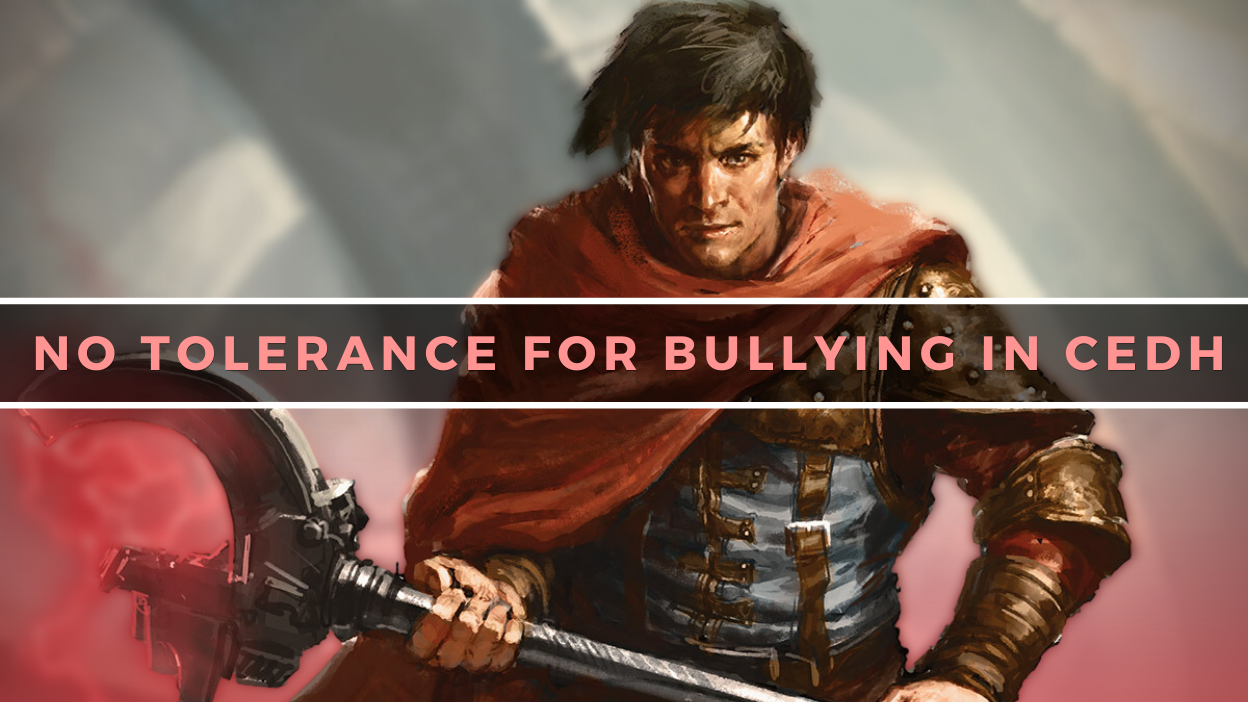
Bullying Defined
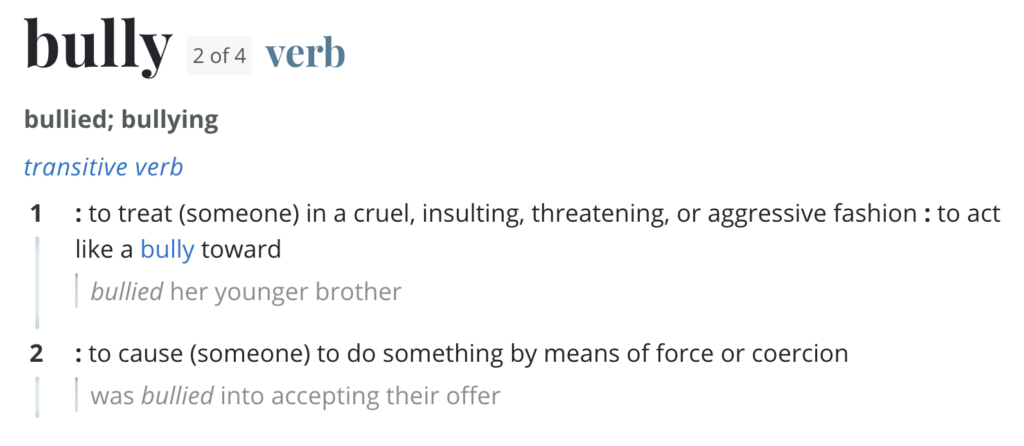
There are a lot of reasons to like cEDH. The format offers an abundance of positive experiences for Magic players of any background and playstyle. Part of what makes my job as a writer here at Commander's Herald so rewarding is being able to capture what makes cEDH so great in bite-sized chunks of text and convey it to prospective and entrenched players alike.
We are not talking about anything of that sort today.
Today we are talking about a concept I consider to be the most frustrating, tedious, pointless, misunderstood, and obnoxious aspect of the entire Commander format at large: Mana Bullying. It is not clear who coined the term, but it, among a few other social complications broken down at a high level here, has existed since I have been playing the format. Fortunately for me, I play primarily with pods of people that are savvy enough at cEDH to understand that mana bullying is, by and large, a poor tactic to employ. Others are not so lucky, and it cost a player big time in the finals of the Mox Masters May event causing an explosion of discussion on Twitter about it.
Mana Bullying vs. Priority Bullying
So what even is mana bullying? Mana bullying is a subset of a larger concept of priority bullying, which refers to using Magic: the Gathering's rules engine around priority in multiplayer to force players to take specific game actions. Mana Bullying specifically, however, refers to the set of rules that force another round of priority when tapping a permanent for mana, thereby allowing players to play "chicken" with game-winning spells on the stack in order to try and get a player to tap some of their mana. Again, everything that happens with these techniques is within the rules of Magic, but the morality and patience for such tactics can vary wildly among players and often leads to lengthy arguments on forums. Let's look at an extremely high-level examples of each concept:
Players A, B, C, and D are playing a game of cEDH. The turn order of this game is A, B, C, then D. Player A is attempting to cast a Thassa's Oracle
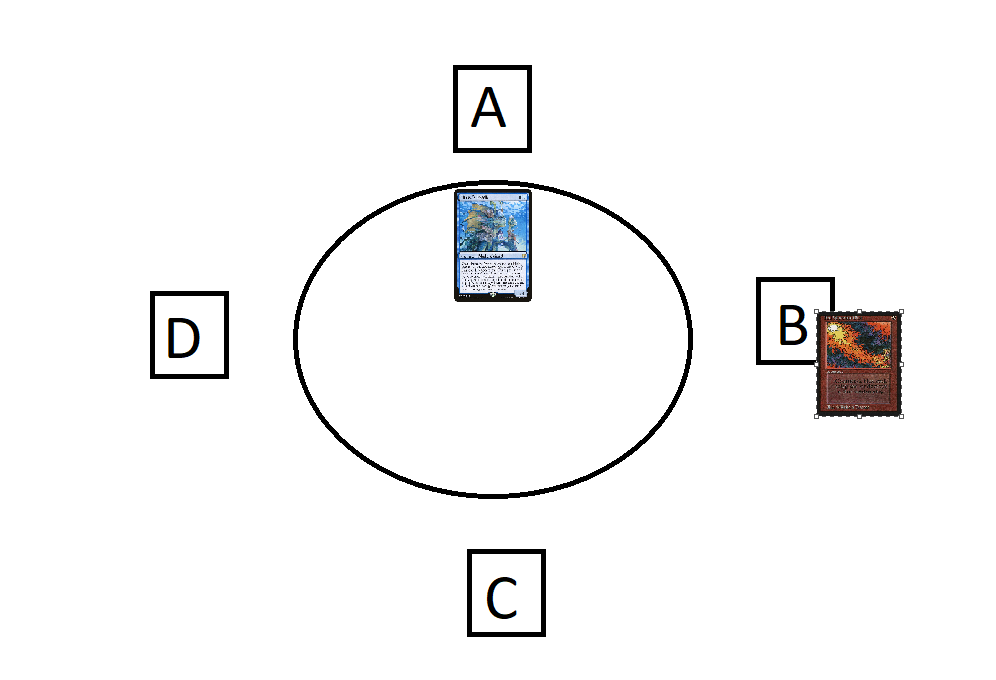
Priority Bullying: Player C has revealed a Force of Will
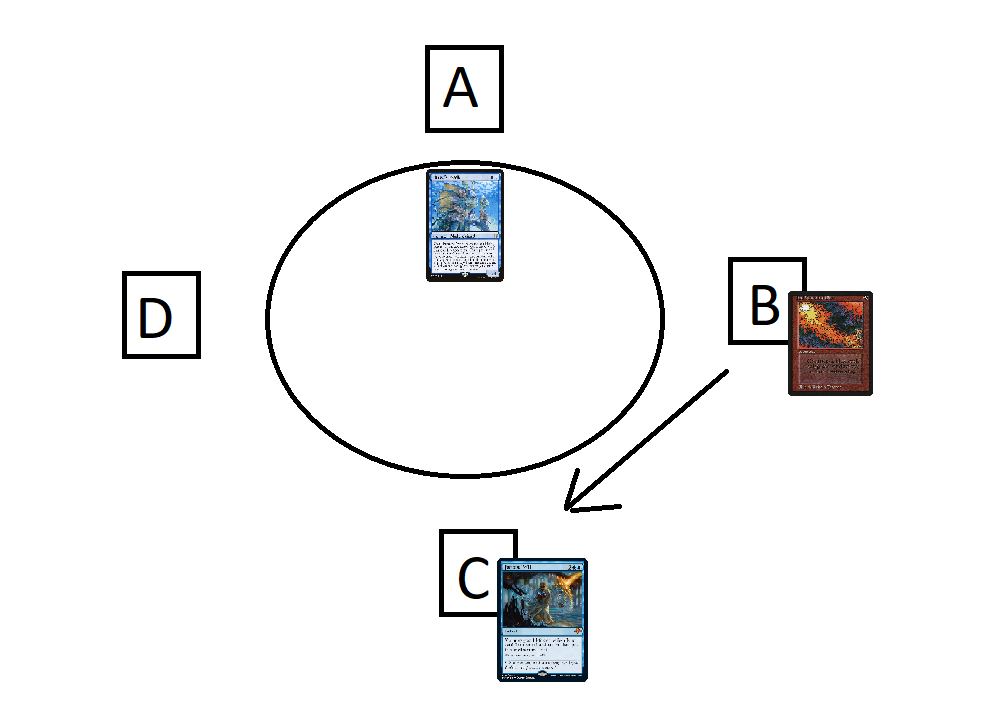
This happens because of the turn order. Player B can pass priority while having the ability to stop the Thassa's Oracle
Mana Bullying: Player B passes priority on Thassa's Oracle
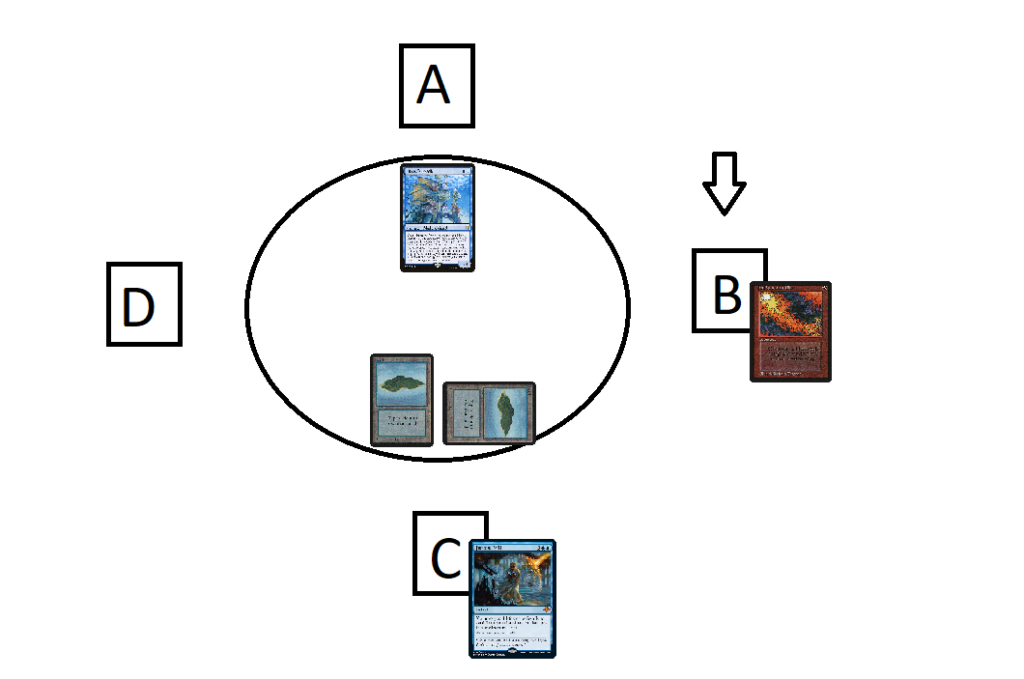
Player C has two options: tap one of their two mana sources and force another round of priority, or just pass priority and die. Assuming Player C cooperates, Player B can force Player C to keep tapping mana until they tap their last mana source at which point Player B could finally cast Red Elemental Blast
Is This Something I Should Be Doing?
Although associating what is happening in-game with the experiences of real-life bullying as we know it from school playgrounds may seem extreme, by definition it fits. You have leverage on the rest of the table as the one that can stop them from losing, and you can attempt to coerce the other players into taking game actions that may be inopportune or actively bad for them at the risk of straight losing otherwise. While this seems potentially appealing as another edge to leverage to build your case for playing "optimally", the reality is there are far more variables than the simple scenario I just went through that was in a vacuum. Often when I have seen players attempt to leverage mana bullying, they believe that having other players tap mana is actively good for them when this is not the case! Imagine in the previous scenario that Player A has the ability to cast a Wheel of Fortune
Priority bullying at large is both a little easier to leverage and comes up more often as deterministically useful. If someone has a face-up counterspell of some kind and a player is attempting a win into it, it is often correct to not counter it and instead let the known counterspell be used and plan to cover any follow-up win attempt with the interaction or information you hid by allowing the spells known to the table be used. Like many things, there is nuance to each and every scenario. With mana bullying specifically though, the edges are so small and not even transparently valuable to you that I would never employ it as a strategy. Even agnostic to the slowdown of gameplay resulting in wasted clock that occurs while someone tries to smooth talk their way into convincing someone to tap some lands. Most of the time it is not good, the players that win the most in this format do so without wasting time getting opponents to tap lands, and ultimately it will just serve to get you killed by opponents that would rather lose than have the game be about mana bullying. The choice is on the opponents to cooperate, giving opponents a choice to determine your fate is not a great entry point for this tactic, and many opponents will just bring you down with them.
My advice is to avoid mana bullying entirely and use priority bullying sparingly, but your mileage may vary.
Mox Masters May
As expected, the Mox Masters May situation was extremely nuanced, but diluting it down there was a lot of table talk surrounding countering a Grand Abolisher
While I was not privy to the extended details of the game, what I will say about the issue is that if you are confident that someone else at the table has interaction, are going to get a turn before the other player with interaction which could dramatically change the texture of the game, and choose instead spend your time trying to hard to get a tiny additional edge out of your face-up interaction to the extent that you allow it to be invalidated completely by the card you refused to stop, that is not a play I would ever make or recommend others make. The situation does a lot to highlight the potential flaws with trying to utilize priority bullying, especially after an opponent has stated they have no intent to cooperate.
Conclusion
While I have my own distaste for mana bullying, priority bullying, and the incentives surrounding them, the situation from Mox Masters May is a prime example of where using these tactics can backfire in a big way, even when stakes are high. I cannot deny that these concepts exist in cEDH and have the potential to come up in pods played in tournaments, but I do not foresee any implementation of mana bullying specifically becoming the standard procedure given the associated risks and annoyances as cEDH matures as a high stakes tournament format. Thank you all for reading, and let me know in the comments if you agree, disagree, or have any other stories surrounding mana bullying to share!